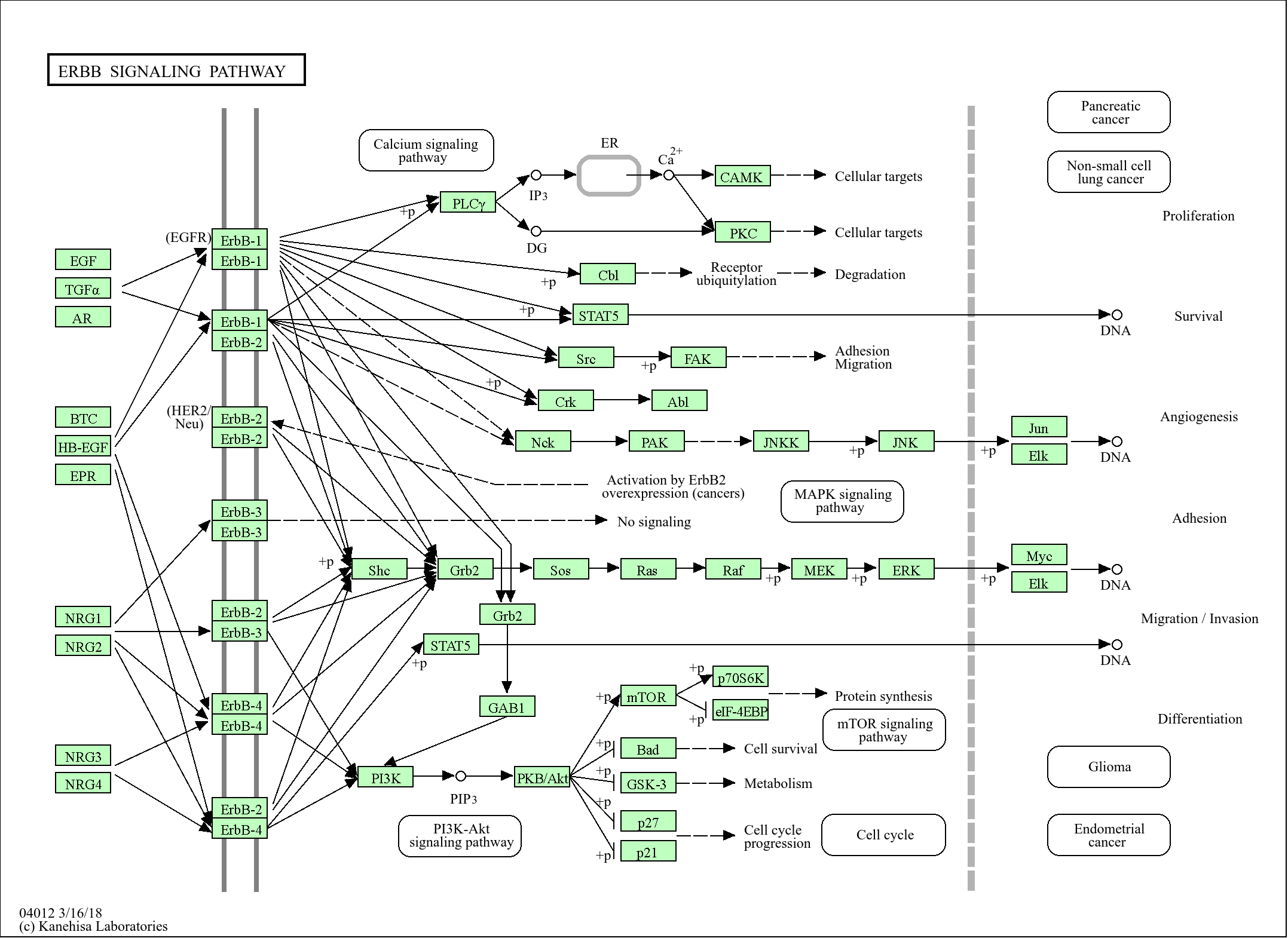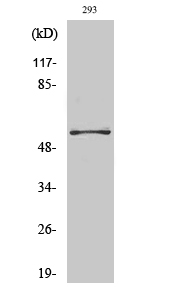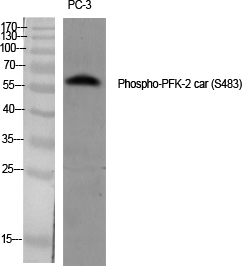
Catalog: YP0711
Size
Price
Status
Qty.
200μL
$600.00
In stock
0
100μL
$340.00
In stock
0
50μL
$190.00
In stock
0
Add to cart


Collected


Collect
Main Information
Target
PFK-2 car
Host Species
Rabbit
Reactivity
Human, Mouse, Rat
Applications
WB, IHC, IF, ELISA
MW
58kD (Observed)
Conjugate/Modification
Phospho
Detailed Information
Recommended Dilution Ratio
WB 1:500-1:2000; IHC 1:100-1:300; ELISA 1:40000; IF 1:50-200
Formulation
Liquid in PBS containing 50% glycerol, 0.5% BSA and 0.02% sodium azide.
Specificity
Phospho-PFK-2 car (S483) Polyclonal Antibody detects endogenous levels of PFK-2 car protein only when phosphorylated at S483.The name of modified sites may be influenced by many factors, such as species (the modified site was not originally found in human samples) and the change of protein sequence (the previous protein sequence is incomplete, and the protein sequence may be prolonged with the development of protein sequencing technology). When naming, we will use the "numbers" in historical reference to keep the sites consistent with the reports. The antibody binds to the following modification sequence (lowercase letters are modification sites):NYsVG
Purification
The antibody was affinity-purified from rabbit antiserum by affinity-chromatography using epitope-specific immunogen.
Storage
-15°C to -25°C/1 year(Do not lower than -25°C)
Concentration
1 mg/ml
MW(Observed)
58kD
Modification
Phospho
Clonality
Polyclonal
Isotype
IgG
Related Products
Antigen&Target Information
Immunogen:
The antiserum was produced against synthesized peptide derived from human PFKFB2 around the phosphorylation site of Ser483. AA range:451-500
show all
Specificity:
Phospho-PFK-2 car (S483) Polyclonal Antibody detects endogenous levels of PFK-2 car protein only when phosphorylated at S483.The name of modified sites may be influenced by many factors, such as species (the modified site was not originally found in human samples) and the change of protein sequence (the previous protein sequence is incomplete, and the protein sequence may be prolonged with the development of protein sequencing technology). When naming, we will use the "numbers" in historical reference to keep the sites consistent with the reports. The antibody binds to the following modification sequence (lowercase letters are modification sites):NYsVG
show all
Gene Name:
PFKFB2
show all
Protein Name:
6-phosphofructo-2-kinase/fructose-2,6-bisphosphatase 2
show all
Other Name:
PFKFB2 ;
6-phosphofructo-2-kinase/fructose-2 ;
6-bisphosphatase 2 ;
6PF-2-K/Fru-2,6-P2ase 2 ;
PFK/FBPase 2 ;
6PF-2-K/Fru-2,6-P2ase heart-type isozyme
6-phosphofructo-2-kinase/fructose-2 ;
6-bisphosphatase 2 ;
6PF-2-K/Fru-2,6-P2ase 2 ;
PFK/FBPase 2 ;
6PF-2-K/Fru-2,6-P2ase heart-type isozyme
show all
Database Link:
Background:
The protein encoded by this gene is involved in both the synthesis and degradation of fructose-2,6-bisphosphate, a regulatory molecule that controls glycolysis in eukaryotes. The encoded protein has a 6-phosphofructo-2-kinase activity that catalyzes the synthesis of fructose-2,6-bisphosphate, and a fructose-2,6-biphosphatase activity that catalyzes the degradation of fructose-2,6-bisphosphate. This protein regulates fructose-2,6-bisphosphate levels in the heart, while a related enzyme encoded by a different gene regulates fructose-2,6-bisphosphate levels in the liver and muscle. This enzyme functions as a homodimer. Two transcript variants encoding two different isoforms have been found for this gene. [provided by RefSeq, Jul 2008],
show all
Function:
Catalytic activity:ATP + D-fructose 6-phosphate = ADP + beta-D-fructose 2,6-bisphosphate.,Catalytic activity:Beta-D-fructose 2,6-bisphosphate + H(2)O = D-fructose 6-phosphate + phosphate.,enzyme regulation:Phosphorylation results in the activation of the kinase activity.,Function:Synthesis and degradation of fructose 2,6-bisphosphate.,similarity:In the C-terminal section; belongs to the phosphoglycerate mutase family.,subunit:Homodimer.,tissue specificity:Heart.,
show all
Cellular Localization:
cytosol,
show all
Tissue Expression:
Heart.
show all
Research Areas:
>>Fructose and mannose metabolism ;
>>Metabolic pathways ;
>>AMPK signaling pathway ;
>>Thyroid hormone signaling pathway
>>Metabolic pathways ;
>>AMPK signaling pathway ;
>>Thyroid hormone signaling pathway
show all
Signaling Pathway
Reference Citation({{totalcount}})
Catalog: YP0711
Size
Price
Status
Qty.
200μL
$600.00
In stock
0
100μL
$340.00
In stock
0
50μL
$190.00
In stock
0
Add to cart


Collected


Collect
Recently Viewed Products
Clear allPRODUCTS
CUSTOMIZED
ABOUT US
Toggle night Mode
{{pinfoXq.title || ''}}
Catalog: {{pinfoXq.catalog || ''}}
Filter:
All
{{item.name}}
{{pinfo.title}}
-{{pinfo.catalog}}
Main Information
Target
{{pinfo.target}}
Reactivity
{{pinfo.react}}
Applications
{{pinfo.applicat}}
Conjugate/Modification
{{pinfo.coupling}}/{{pinfo.modific}}
MW (kDa)
{{pinfo.mwcalc}}
Host Species
{{pinfo.hostspec}}
Isotype
{{pinfo.isotype}}
Product {{index}}/{{pcount}}
Prev
Next
{{pvTitle}}
Scroll wheel zooms the picture
{{pvDescr}}


















